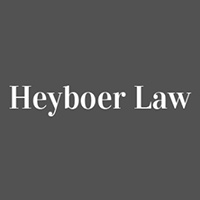Brown City DUI-DWI Lawyer, Michigan
Sponsored Law Firm
-
 x
x

Click For More Info:
-
Hannawa Law PC
2909 E Big Beaver Rd Troy, MI 48083» view mapCriminal Defense Law Full-service legal experts on your side.
Whatever the specific details of your situation may be, our attorneys are ready to fight for you and guide you through every step of the process.
248-466-0770
David R. Heyboer
✓ VERIFIEDCriminal, DUI-DWI, Bankruptcy & Debt, Personal Injury, Real Estate
When you've been arrested and facing criminal charges, there can be serious consequences for you and your family. Don't face your criminal charges alo... (more)
James C. Toth
Foreclosure, Dispute Resolution, DUI-DWI, Contract
Status: In Good Standing Licensed: 30 Years
Phyllis G. Wood
Child Custody, DUI-DWI, Civil Rights, Contract
Status: In Good Standing Licensed: 14 Years
Elizabeth Virginia Weisenbach
Traffic, Juvenile Law, DUI-DWI, Criminal
Status: In Good Standing Licensed: 25 Years
Frederick N. Blanchard
Criminal, DUI-DWI, Personal Injury, Traffic
Status: In Good Standing Licensed: 30 Years
FREE CONSULTATION
CONTACTR. Mark Bibler
Power of Attorney, Estate Planning, Elder Law, Business, DUI-DWI
Status: In Good Standing Licensed: 54 Years
Bernhardt D. Christenson
Wills & Probate, Employee Rights, DUI-DWI, Insurance
Status: In Good Standing
Frank Yiannatji
Criminal, Slip & Fall Accident, DUI-DWI, Workers' Compensation, Car Accident
Status: In Good Standing Licensed: 42 Years
 Nickolas Hannawa Troy, MI
Nickolas Hannawa Troy, MI AboutHannawa Law PC
AboutHannawa Law PC

